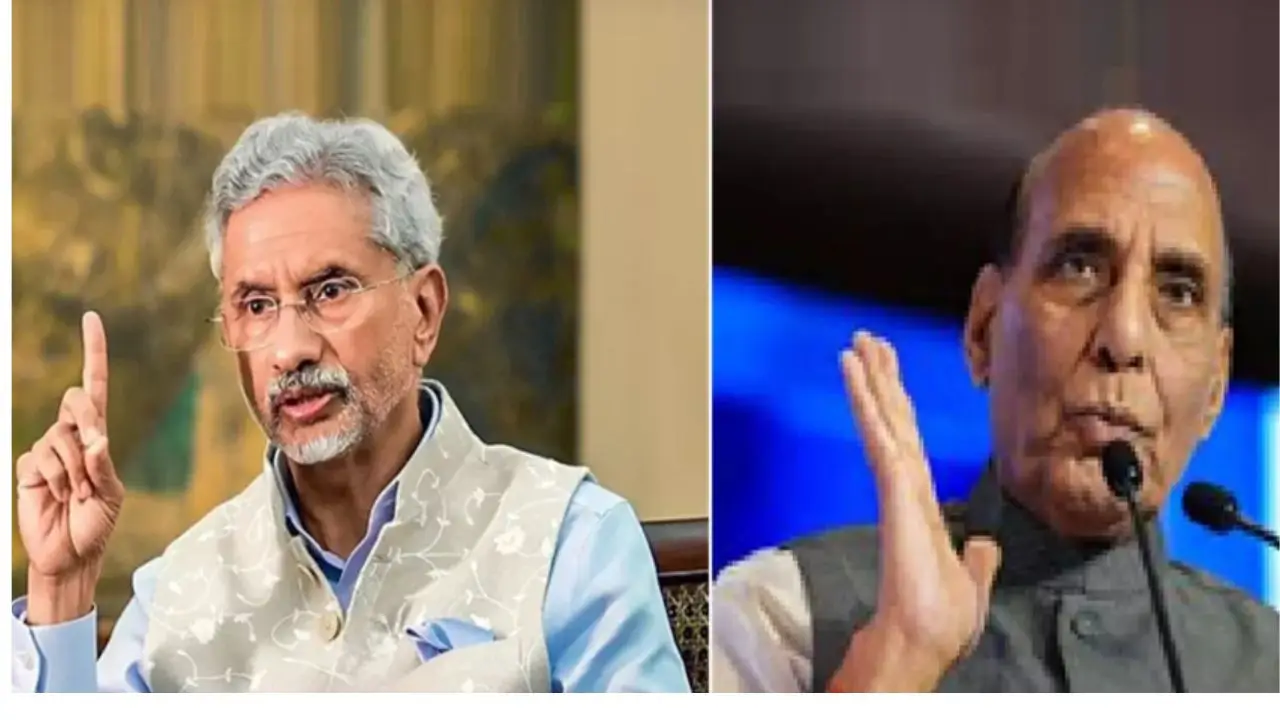
Rajnath-Jaishankar (File)
In a firm diplomatic stance, External Affairs Minister S. Jaishankar and Defence Minister Rajnath Singh told their American counterparts that India will not bow to pressure from any nation. This blunt message, delivered amid discussions following the April 22, 2025, Pahalgam terror attack, underscores India’s resolve to safeguard its sovereignty and counter terrorism independently, particularly in response to Pakistan’s alleged role in the attack.
Context of the Diplomatic Exchange
The Pahalgam massacre, which killed 26 tourists, has heightened India-Pakistan tensions, with India attributing the attack to Pakistan-backed militants. Jaishankar, speaking to US Secretary of State Marco Rubio, emphasized that the perpetrators and their backers must face justice. Similarly, Rajnath Singh, in talks with US Defense Secretary Pete Hegseth, reiterated India’s right to self-defense. Both ministers rejected Pakistan’s call, relayed via the US, for India to “dial down rhetoric,” signaling zero tolerance for external interference.
India’s response reflects its evolving foreign policy, prioritizing strategic autonomy. Jaishankar stressed that India’s actions against cross-border terrorism, including suspending the Indus Waters Treaty and closing the Attari border post, are non-negotiable. Singh, addressing Hegseth, highlighted India’s military preparedness, with recent meetings alongside Prime Minister Narendra Modi reviewing security along the Line of Control (LoC). This stance aligns with India’s broader push for a multipolar world, where it engages major powers without yielding to pressure.
The US expressed solidarity, with Rubio and Hegseth condemning the Pahalgam attack and affirming support for India’s anti-terrorism efforts. However, India’s leaders made it clear that while cooperation is valued, Delhi will not accept directives on its security policies. This exchange highlights the delicate balance in India-US relations, strengthened by shared interests but tested by differing views on regional dynamics.
India’s unwavering position signals a tougher approach to Pakistan and a warning to other nations against meddling in its affairs. As tensions simmer along the LoC, with Pakistan deploying additional forces, India’s military and diplomatic resolve will shape South Asia’s security landscape. The government’s actions, backed by domestic support, aim to deter terrorism while asserting India’s global standing, ensuring its policies remain driven by national interests alone.





Copyright © 2026 Top Indian News
